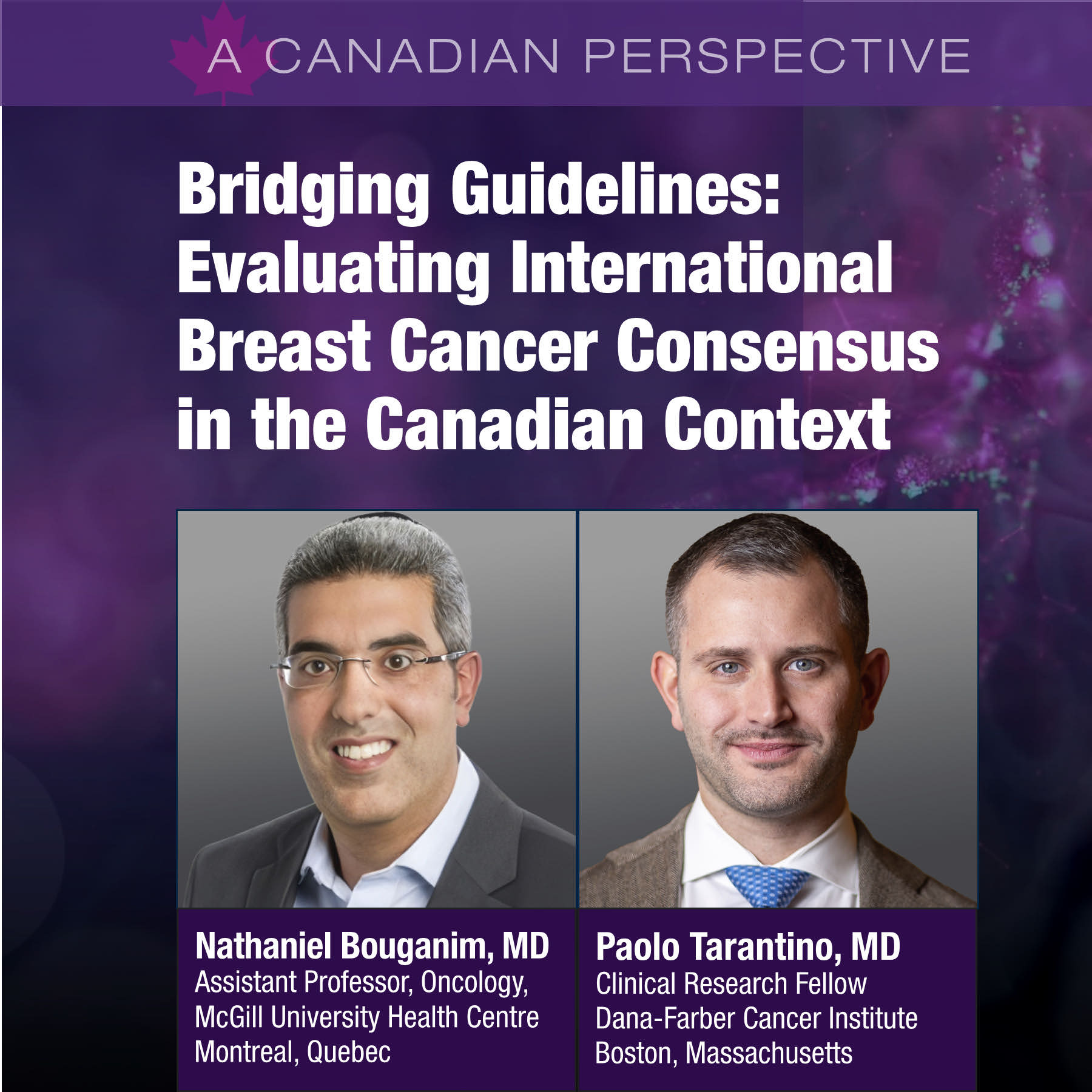
ESMO 2023 - Antibody-drug conjugates improve outcomes in HER2-nonamplified breast cancer
November 2023
By Wayne Kuznar for oncoXchange
Significant improvements in progression-free survival (PFS) were realized in two large phase III trials of antibody-drug conjugates (ADCs) in patients with HER2-low inoperable or metastatic breast cancer. As presented at the ESMO Congress 2023, favourable results were obtained with two ADCs, datopotamab deruxtecan (Dato-DXd) and trastuzumab deruxtecan.
In the TROPION-Breast01 trial, treatment with the TROP2-directed ADC, Dato-DXd, significantly improved PFS over that with investigator’s choice of chemotherapy in patients with inoperable or metastatic hormone receptor-positive, HER2-negative breast cancer who had previously received chemotherapy, reported Aditya Bardia, MD, from Massachusetts General Hospital Cancer Center, Boston.
Median PFS was 6.9 months in the datopotamab deruxtecan arm versus 4.9 months in the chemotherapy arm (HR, 0.63, 95% CI, 0.52–0.76; P<0.0001), meeting the study’s primary endpoint. Overall survival (OS) also favoured the Dato-DXd arm (HR 0.84, 95% CI 0.62–1.14), although the data are not yet mature.
The results “support Dato-DXd as a potential new therapeutic option for patients with metastatic HR-positive/HER2-negative breast cancer,” Prof. Bardia said.
Despite new therapeutic options becoming available, there remains an unmet need from both an efficacy and safety perspective after endocrine therapy and one line of systemic therapy for patients with HR+/HER2- metastatic breast cancer. Chemotherapy is used widely for management of endocrine-resistant HR-positive/HER2- metastatic breast cancer, “but is associated with low response rate, poor prognosis, and significant toxicity including myelosuppression and peripheral neuropathy,” he said. “There are TROP2-directed ADCs that are approved and in clinical development that have demonstrated efficacy, but can have dose-limiting toxicities including diarrhea, neutropenia, and thrombocytopenia.”
Patients eligible for TROPION-Breast01 had inoperable or metastatic HR-positive/HER2-negative breast cancer and had experienced progression on or were unsuitable for endocrine therapy and had received one to two previous lines of systemic chemotherapy. The study enrolled 732 patients (median age 54-56 years) who were randomized to Dato-DXd or an investigator's choice of chemotherapy eribulin, vinorelbine, capecitabine, or gemcitabine. The median treatment duration was 6.7 months with Dato-DXd and 4.1 months with chemotherapy. At data cut-off, three times as many patients remain on Dat-DXd compared with chemotherapy.
The 9-month PFS rate was approximately double in the Dato-DXd arm compared with the chemotherapy arm (37.5% vs. 18.7%).
Subgroups based on age, race, ECOG performance status, geographic region, number of prior lines of therapy, prior use of CDK4/6 inhibitors, or prior use of anthracyclines or taxanes derived benefit from Dat-DXd relative to chemotherapy. Some 36.4% of patients randomized Dato-DXd had a response to therapy compared with 22.9% of patients assigned chemotherapy.
A final overall survival analysis (OS) is forthcoming. A trend favouring Dato-DXd was observed on OS at a median follow-up of 9.7 months (HR 0.84, 95% CI, 0.62–1.14).
“In general, we see that the rate of adverse events [AEs] is higher in the intervention arms as compared to the control arm. But here, the rate of grade-3 or higher AEs was lower with Dato-DXd as compared to standard chemotherapy,” Prof. Bardia said.
The rate of treatment-related AEs with Dato-DXd was 20.8%, compared with 44.7% for standard chemotherapy, but the rate of grade ≥3 treatment-related AEs was 21% in the Dato-DXd arm versus 45% in the standard chemotherapy arm. Similarly, rates of treatment interruptions (12% vs. 25%) and dose reductions (21% vs. 30%) were also lower with Dato-DXd compared with standard chemotherapy. No treatment-related deaths were recorded in the Dato-DXd group.
Adverse events of special interest included oral mucositis/stomatitis, which led to discontinuation in one patient in the Dato-DXd group. Ocular events such as dry eye also occurred, but most AEs were grade 1 or 2. Adjudicated drug-related interstitial lung disease occurred in 3% of patients assigned Dato-DXd, but only 1% were grade ≥3.
Discussant Sarat Chandarlapaty MD, from the Memorial Sloan Kettering Cancer Center, New York City, said that he would rather prescribe Dato-DXd than chemotherapy after one or two prior lines of chemotherapy in unselected patients with HER-positive/HER2-negative breast cancer, but the data leave several unanswered questions considering two ADCs are already approved in HR-positive breast cancer—sacituzumab govitecan and trastuzumab deruxtecan. He said that he didn’t have an answer as to which of the three he would prescribe in this instance. Whether these drugs can be sequenced is also unknown, he said.
Updated survival data from the DESTINY-Breast04 trial were also presented at the ESMO 2023 Congress, and indicate a sustained improvement in OS with trastuzumab versus treatment of physician’s choice in patients with previously treated HER2-low advanced breast cancer.
After a median follow-up of 32.0 months, median OS was 22.9 months for the 373 patients in the trastuzumab arm versus 16.8 months for the 184 patients in the treatment of physician’s choice arm (HR, 0.69; 95% CI, 0.55–0.86). Median PFS was 8.8 months versus 4.2 months, respectively (HR, 0.36; 95% CI, 0.29–0.45).

Comments (0)